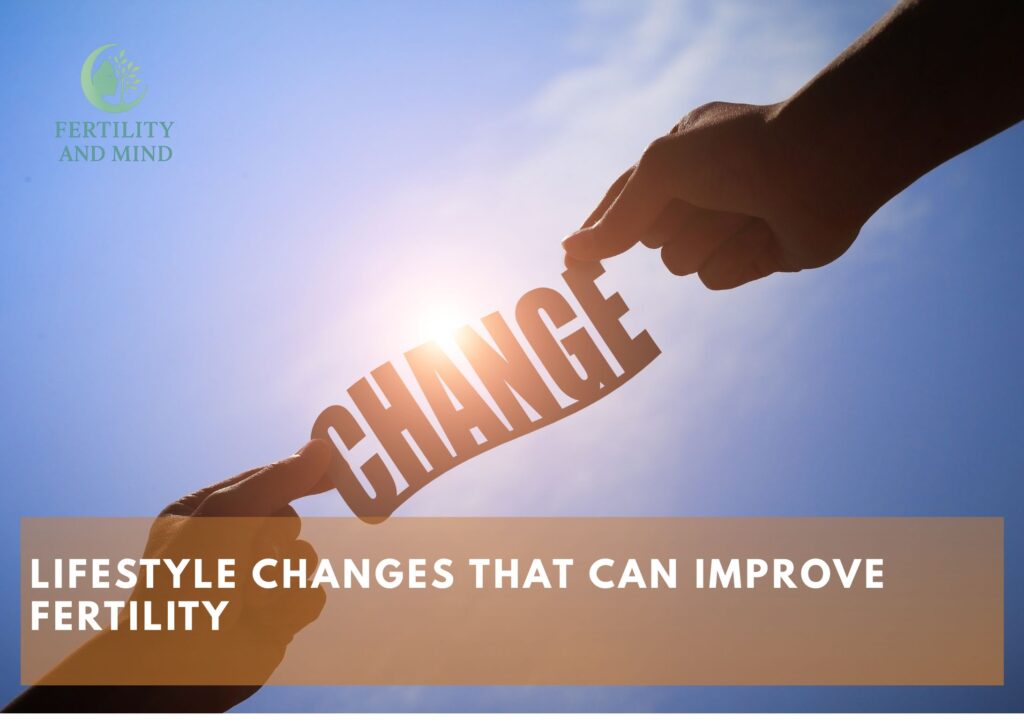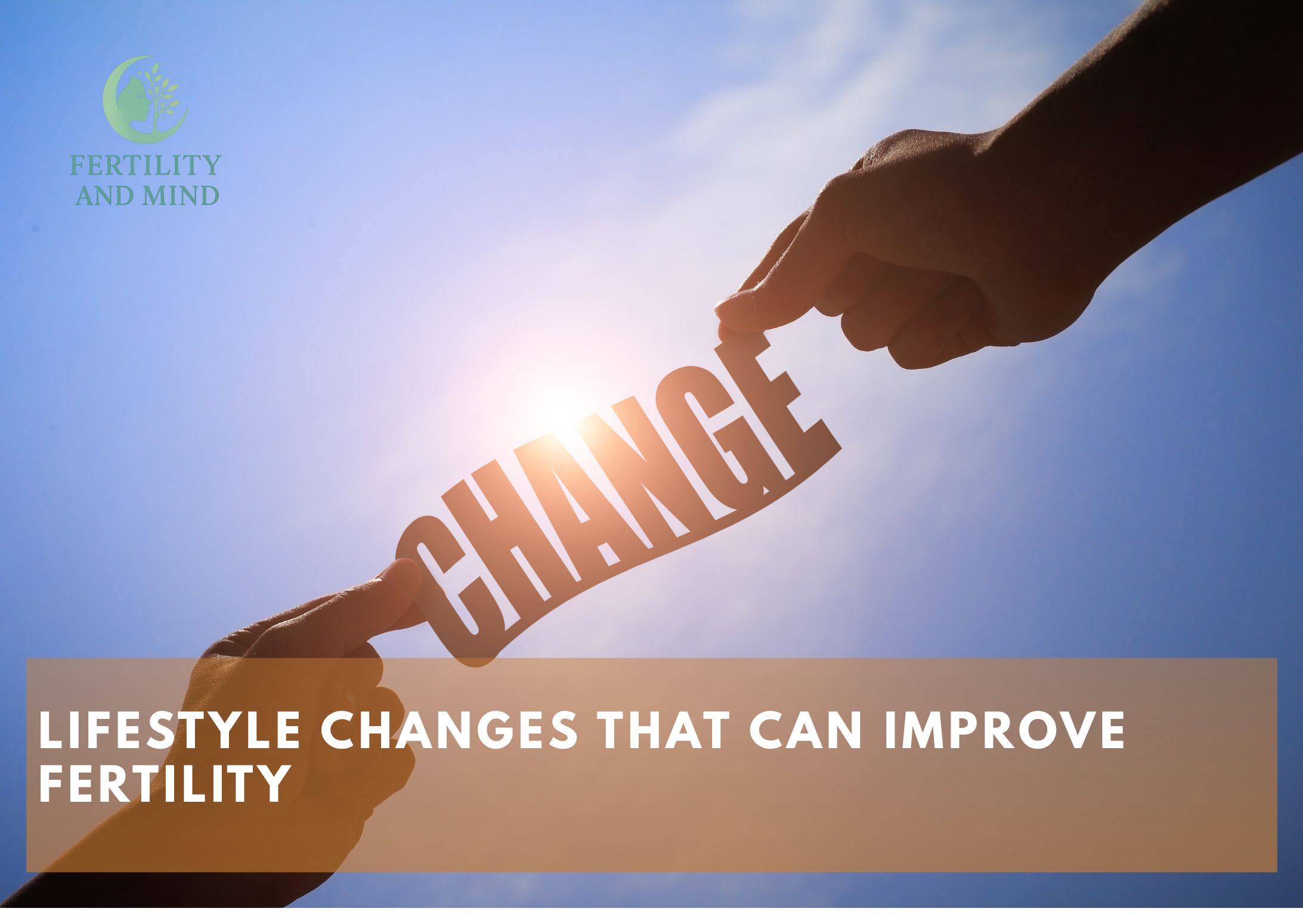
Fertility is influenced by many factors genetics, age, and medical conditions but lifestyle choices play a surprisingly big role. The way you eat, move, rest, and even manage stress can shape your reproductive health. The good news? Many of these factors are within your control.
This article explores evidence based lifestyle changes that can improve fertility in both men and women, along with personal reflections that bring these strategies to life.
Why Lifestyle Choices Matter in Fertility
How daily habits shape reproductive health
Research shows that weight, nutrition, exercise, stress, sleep, and exposure to toxins all affect fertility outcomes. Both sperm and egg health are sensitive to these factors.
Subtle changes, big impacts
The encouraging part is that small, consistent shifts like adjusting your diet or practicing mindfulness can have meaningful effects on conception.
Nutrition: Eat Smart for Reproductive Wellness
Mediterranean style, whole food diet
A fertility-friendly diet focuses on fresh vegetables, fruits, lean proteins, whole grains, and healthy fats. The Mediterranean diet has been linked to better ovulation and improved sperm quality.
Key nutrients: folate, omega-3s, antioxidants
- Folate supports healthy ovulation and fetal development.
- Omega-3 fatty acids (from salmon, chia, walnuts) enhance hormone balance.
- Antioxidants (from berries, leafy greens, green tea) protect eggs and sperm from oxidative stress.
Reducing sugar, processed foods, caffeine
High sugar diets and excess caffeine can disrupt hormone balance. Moderation helps improve overall reproductive function.
“My partner and I started cooking a weekly dinner with avocado, salmon, and green smoothies. That simple ritual gave us both nourishment and a sense of purpose it felt like we were feeding more than just our bodies.”
Weight and Exercise: Find a Fertility Friendly Balance
Maintaining healthy BMI
Being significantly underweight or overweight can interfere with ovulation and sperm production. Even a 5–10% weight loss in overweight individuals can improve fertility.
Moderate movement vs overtraining
Gentle exercise like walking, yoga, or swimming enhances blood flow and hormone balance. Intense training, however, may disrupt cycles.
Hydration and sleep as fertility partners
Drinking water and prioritizing 7–9 hours of sleep support hormone regulation and reproductive health.
“I used to think hitting the gym daily was the key. But switching to mindful walks and yoga actually improved my sleep and cycle regularity. It was like my body was saying: ‘Thank you for caring in the right way.’”
Tips to Reduce Environmental Impact
Avoid toxins: BPA, phthalates, pesticides
Endocrine disrupting chemicals found in plastics, pesticides, and some cosmetics may affect fertility. Choosing glass or stainless steel, washing produce, and reducing processed packaging can help.
“I swapped plastic water bottles for a stainless steel thermos. It was such a small change, but it made me feel like I was actively protecting my fertility and overall health.”
Mind Body Connections: Managing Stress for Conception
Role of stress, sleep, and mental health
Chronic stress raises cortisol, which can interfere with reproductive hormones. Sleep disruption further compounds the problem.
Simple practices: mindfulness, journaling, couples habits
- Mindfulness meditation to calm the nervous system
- Journaling to release worry
- Couples rituals like walking after dinner to connect emotionally
“During our journey, we created a no-phones evening walk routine. It was less about exercise and more about breathing, talking, and feeling present together.”
Nutritional Support: Supplements and Pre-Conception Care
Prenatal vitamins and essentials
Even before pregnancy, prenatal vitamins with folate and vitamin D support fertility.
Additional supplements
- CoQ10: may improve egg and sperm quality.
- Myo-inositol: supports ovulation in women with PCOS.
- Vitamin D & zinc: linked to sperm health and ovarian function.
When and how to consult your provider
Always speak to a doctor before starting supplements, especially if already undergoing fertility treatments.
Personal Reflections on Changing Lifestyle for Fertility
“What started as simple food swaps and mindful walks turned into a lifestyle that made me feel healthier overall. I realized fertility wasn’t just about getting pregnant it was about building a foundation for long-term wellness.”
Conclusion: Small Lifestyle Wins, Stronger Fertility Foundations
Lifestyle choices can’t guarantee pregnancy, but they can optimize your chances and improve overall well-being along the way. With the right balance of nutrition, exercise, stress management, and toxin reduction, you can support your fertility naturally.
Even small, consistent changes like cooking healthy meals together, reducing plastic use, or setting aside quiet time daily can make a meaningful difference.

